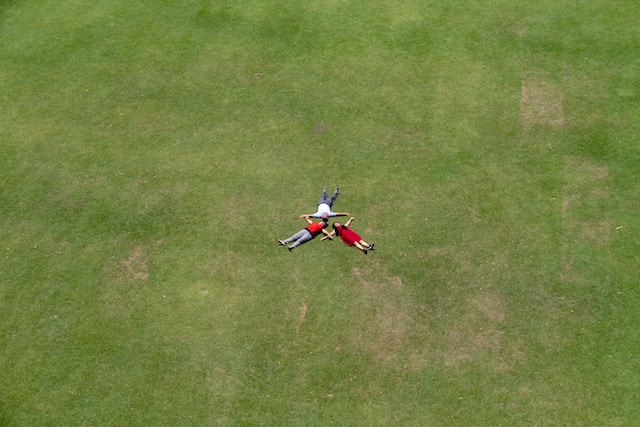
Scalping can occur when you mow your lawn too short. This can often happen by accident, but it's important to know what to do when you've scalped your lawn so you can get it looking fresh and new in no time.
When Can Lawn Scalping Occur?
Scalping refers to the process of cutting your grass very short, leaving dead patches of brown grass. This is usually done to warm-season grasses which lie dormant in the winter. Scalping can help these grasses kickstart the growing process in the spring.
When scalping, it's important to leave a good amount of the grass blade intact so that the grass can continue to absorb the sun's energy. If you cut the grass too short, then you risk cutting the grass blade off completely, resulting in brown-coloured dead patches.
Scalping can also occur if you have uneven lawn levels or if you have an accumulation of thatch (a layer of dead turf material) on your lawn.
How Can I Avoid Scalping My Lawn?
If you want to avoid scalping while mowing your lawn, the best thing to do is take the actions below to prevent it from happening. When you prevent lawn scalping, you can make sure that your grass always has the energy and nutrients that it needs to survive to make your lawn lush and healthy.
1. Cut Your Lawn to The Correct Length
Figure out what the ideal length for your grass is. This depends on species of grass you have. Generally, cool season grass should be cut to 1 inch or longer, whereas warm season grass is suited to heights of 2.5 inches or more. Ensure that your grass is around 3.5 inches before mowing so that you can just remove the 1/3rd of the grass blade, keeping all the important parts intact for nutrients.
2. Sharpen Your Lawn Mower Blade
A dull lawnmower blade can rip and pull the grass, leaving tears and weakening the plant. This also leaves is susceptible to fungus and multiple grass diseases. Ensure that your sharpen your lawn mower's blade to allow the grass to cut cleanly - meaning that your grass can recover and heal even quicker.
This blog has a detailed advice on how to sharpen a lawn mower blade effectively and safely!
3. Mow in Cool Weather
Grass is more likely to recover from scalping in cold weather than in warm weather. This is because warm weather will cause the moisture inside to evaporate, damaging the grass blade further.
My Lawn is Scalped - What Do I Do?
The above tips are to avoid scalping your lawn. If you've accidentally scalped your lawn, then you will have to take a different course of action.
Identify Scalped Areas
By identifying the scalped area, you may be able to figure out the source of the problem. For example, if it is uniformly scalped, you may have set your mower setting too low. If it is only in certain areas, the land below your grass may be uneven in some places.
Water Several Times a Week
Water your lawn gently yet generously several times a week to revive the grass.
Add Topsoil
If the scalping is due to uneven land, you can add top-dressing and new grass seed to those areas to even out the grass, and the land beneath it, to prevent it from happening again.
Adjust Your Lawn Mower's Settings
Once you've taken these tips into account, adjust your lawn mower blades to cut at the optimal height for your lawn. This may involve adjusting the blades for different parts of your lawn to ensure that scalping doesn't occur again.
Fix Lawn Scalping With Lawn & Weed Expert!
If your lawn is too damaged or you don't know where to start, we provide lawn care services involving restorative applications that will protect and strengthen your lawn. For more information or any queries, we'd be happy to help you. Simply click the buttons below!
Request a FREE Lawn Survey Lawn Mowing Advice Contact Us